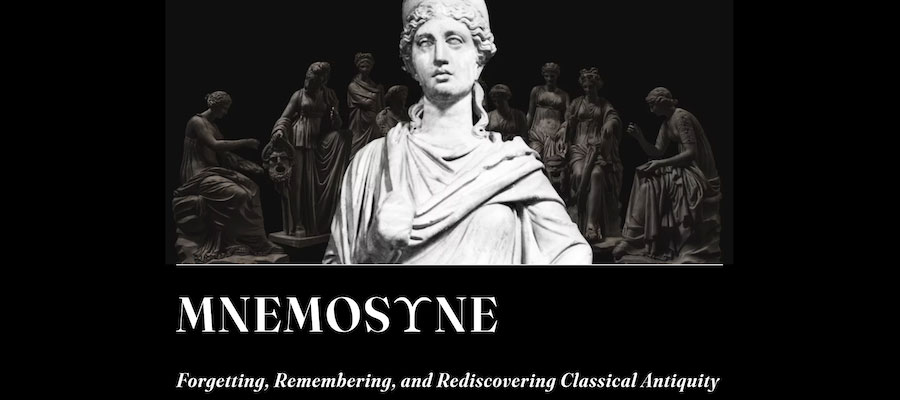Mnemosyne: Forgetting, Remembering, and Rediscovering Classical Antiquity, Senate House, London, May 4–5, 2023
The Warburg Institute, in collaboration with the Institute of Classical Studies, is hosting its fourth Postgraduate Symposium, Mnemosyne: Forgetting, Remembering, and Rediscovering Classical Antiquity. This is an in-person event for postgraduate students and early-career researchers held in central London.
In Antiquity, Mnemosyne, goddess of Memory, was the mother of the muses who were considered the source and mediating function of all knowledge expressed in the arts, myths and sciences of their time. The embodiment of ancestral memory endures to this day in sites, processes and narratives of contemporary culture, which capture the human imagination and where a sense of continuity is persistent, interrupted, rediscovered or diverted.
The aim of this conference is to explore the role of memory in the survival of classical culture across the centuries. It traces the repetition or discontinuity of the classical as it flows, crystallises, or is disrupted, in various aspects of cultural expression.
We invite papers in the fields of art history, intellectual history, cultural history, psychology, Renaissance studies, literary studies, media and film studies, museum/heritage studies, and related disciplines.
Possible themes may include but are not limited to:
Arts and Heritage
- Collecting and exhibiting cultures: fashioning, distorting and preserving memory in the history of collecting. How do museums and archives function as sites of memory? How has the memory of the classical world been produced, sustained, or contested by means of the collection, preservation, and display of antiquities?
- The survival of classical images: reappearance and reinterpretation of figural motifs and themes from the Renaissance to present times (narratives, allegories, personifications, pathosformeln).
- Making and unmaking memory: the construction and destruction of monuments (damnatio memoriae) as a means of preserving and erasing memory.
- Critical heritage studies: What is does the “reconstruction” or “conservation” of ancient heritage sites involve, practically and ethically? What does it mean to remember with ruins?
Psychological and religious narratives
- Soul and soul-making: Remembering, forgetting and rediscovering classical antiquity in psychological theories and practices across time and space. How is classical mythology, philosophy and literature received in the works of psychoanalysts like Jung and Freud?
- Revisioning and reinterpreting ancient motifs in spiritual practices as they appear in the sciences, arts and society from antiquity to the present. For example, how do ancient theurgic rituals reappear in later liturgical and magical practices?
- Cognitive classics: How can modern psychological insights into the nature of visual, spatial, episodic, and auditory memory aid us in the study of the ancient world and its survivals?
Sites of preservation and transmission
- Mnemotechnics: Using the ‘method of places’ (loci), whereby symbols are arranged within imagined architectural space, ancient people were capable of performing prodigious feats of recollection. How have the ancient memory arts been received in later rhetoric, philosophy, religion, magic and other fields?
- Methods of information management and their impact on memory production: In the modern era, the art of memory has been supplanted by systematic techniques of cataloguing, indexing, and digitisation. How do these methods for recording antiquity shape the way classical culture is remembered and received, from encyclopaedias to twenty-first century digital classics projects?
- Speak Memory: in early antiquity, poetic performance was fundamentally an art of memory, with the Homeric rhapsode being able to recall songs of prodigious length from memory. How has the classical oral tradition been received and re-activated in later performance arts, including spoken poetry and music?
